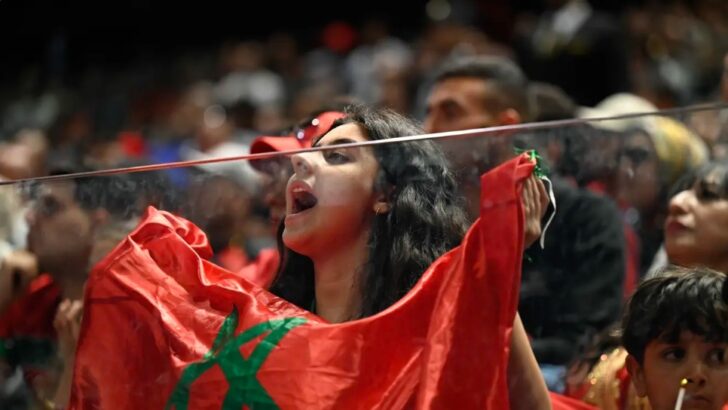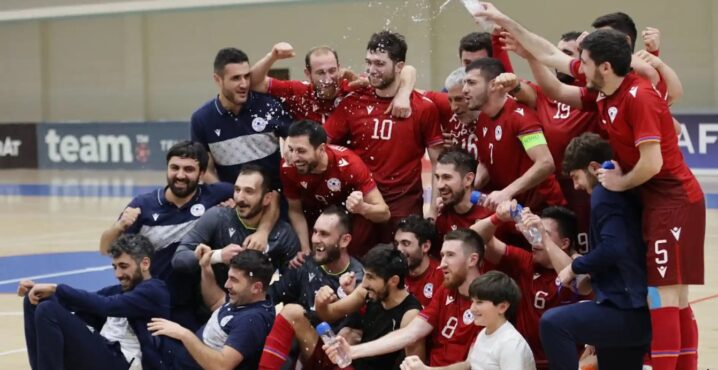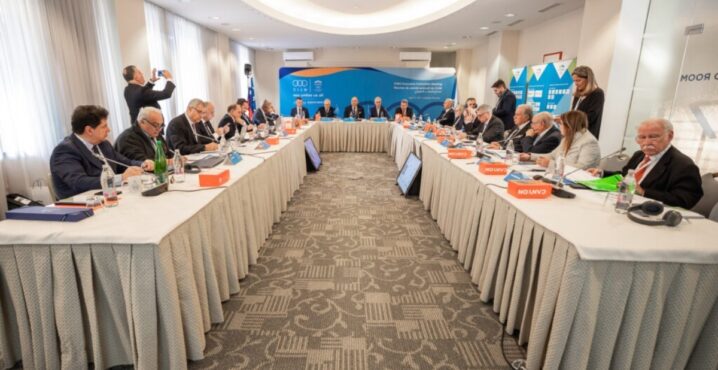Estimated reading time:7 minutes, 44 seconds
As the inaugural Women’s Futsal Africa Cup of Nations electrifies Rabat, CAF’s long-term vision for grassroots, coaching, and youth development signals a bold future for African futsal.
A historic moment is unfolding in North Africa as the inaugural CAF Women’s Futsal Africa Cup of Nations (WAFCON) blazes into life in Rabat. Running from April 22–30, 2025, the tournament marks the first-ever official continental competition for women’s futsal under CAF’s banner — and crucially, it doubles as qualification for the first FIFA Women’s Futsal World Cup to be held later this year in the Philippines. Nine nations. Three groups. One ground breaking tournament. And, behind the goals and glitter, a deeper revolution is stirring across Africa’s futsal landscape.
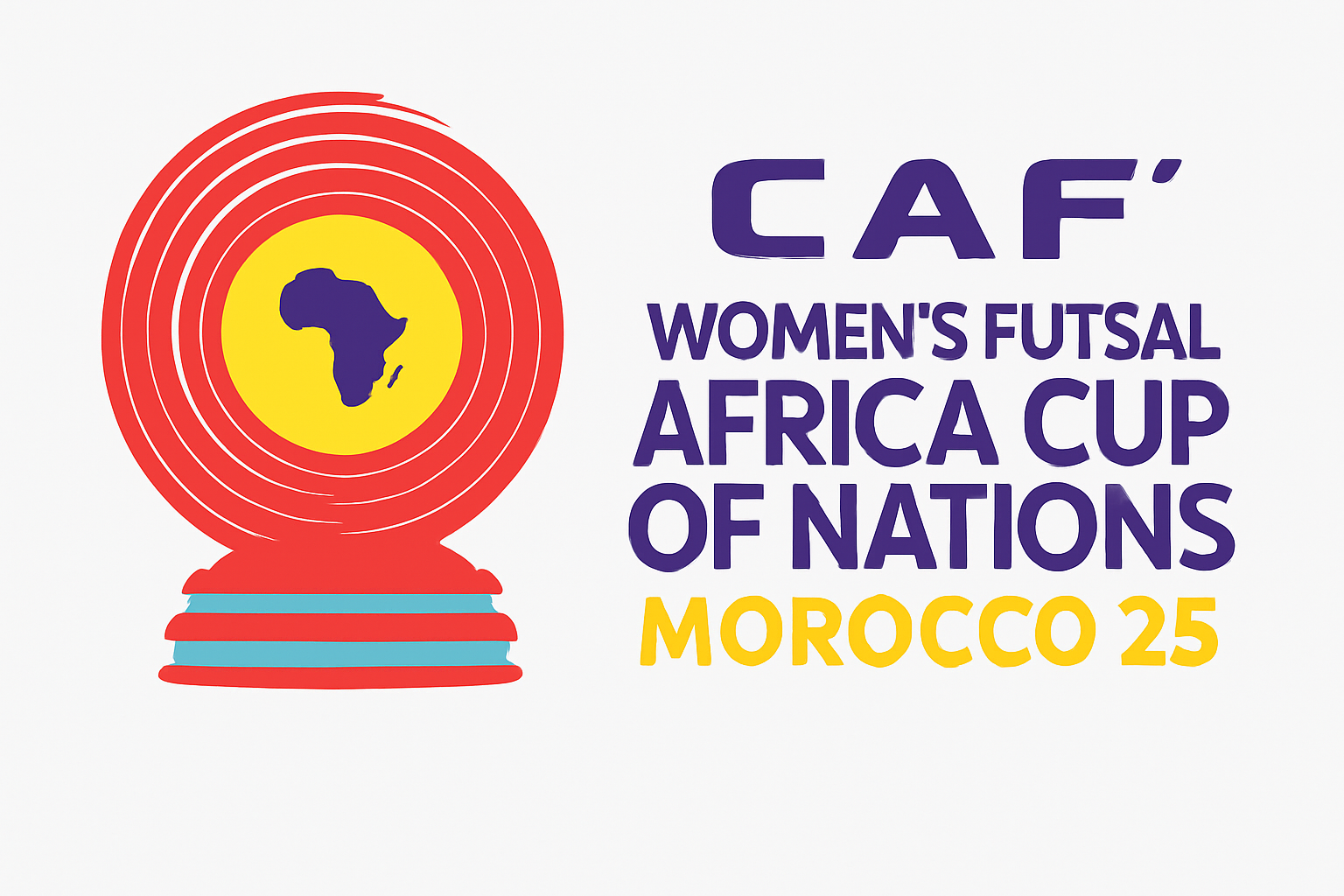
Competition logo – source of the image: CAF
Tournament Progress: Morocco and Angola Dominate as the Race Tightens
From the opening whistle, the competition has delivered end-to-end excitement, free-flowing goals, and passionate performances. Group A was set ablaze by hosts Morocco, who thrashed Namibia 8–1 in the tournament opener before overpowering Cameroon 7–1 to seal top spot with a game to spare. Amal El Ouafi, Meryem Hajri, Chirine Knaidil, and Siham Tadlaoui have been electric, combining slick rotations with clinical finishing. The Moroccan side looks every bit like champions-in-waiting on home soil.
(Main picture: Moroccan support for their national futsal team – source of the image: CAF)
In Group B, Angola has been just as clinical. A 5–2 victory over Guinea, spearheaded by a brace from Joyce, was followed by a confident 3–1 win over Egypt. Angola’s fluid movement and transition play underlined their pedigree as a futsal nation on the rise.
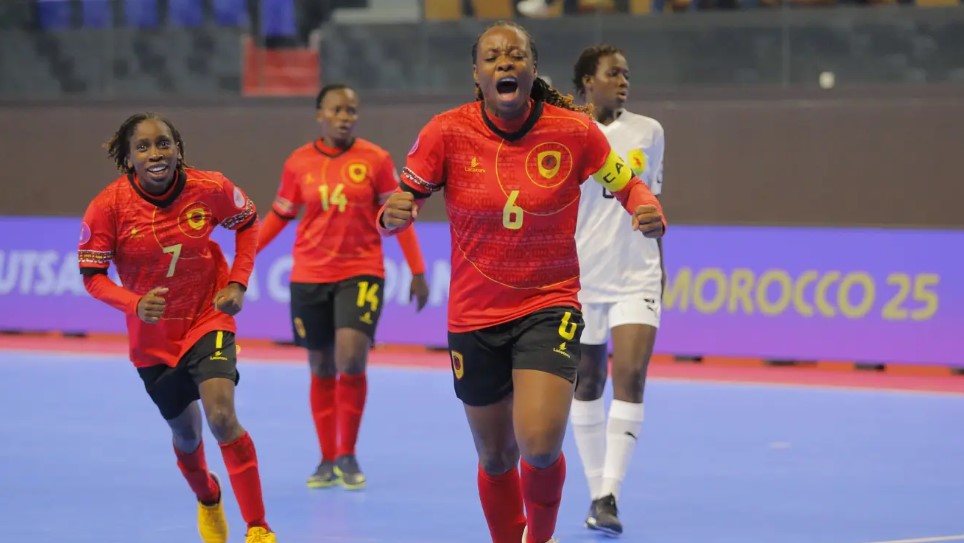
Angola’s opening match of the inaugural Women’s Futsal Africa Cup of Nations saw them come out top with an impressive 5-2 victory over Guinea – source of the image: CAF
Meanwhile, Group C has been the tournament’s wild card: a trio of draws — 5–5 between Senegal and Madagascar, 4–4 between Madagascar and Tanzania — means everything is still to play for. The final group matches on April 26 will determine who advances to the semi-finals.
Standout players so far include Morocco’s Amal El Ouafi, Angola’s Joyce, Tanzania’s Donisia Minja (two-goal hero in their 4–4 thriller), and Madagascar’s tireless pivot Sarah Ramanantsoa.
Reactions: Coaches, Players, and Fans Embrace a New Era
The buzz around Rabat is electric — and across African futsal, there’s a tangible sense that history is being written. Louis René Epée, head coach of Cameroon (and a longstanding pioneer of futsal in his country), summed up the stakes perfectly in an interview with CAF:
“We’re not just here to participate. We’re here to win. But beyond the results, this is about recognition — giving women’s futsal the platform it deserves.”
His call for greater investment, media visibility, and gender parity in futsal development has echoed widely.
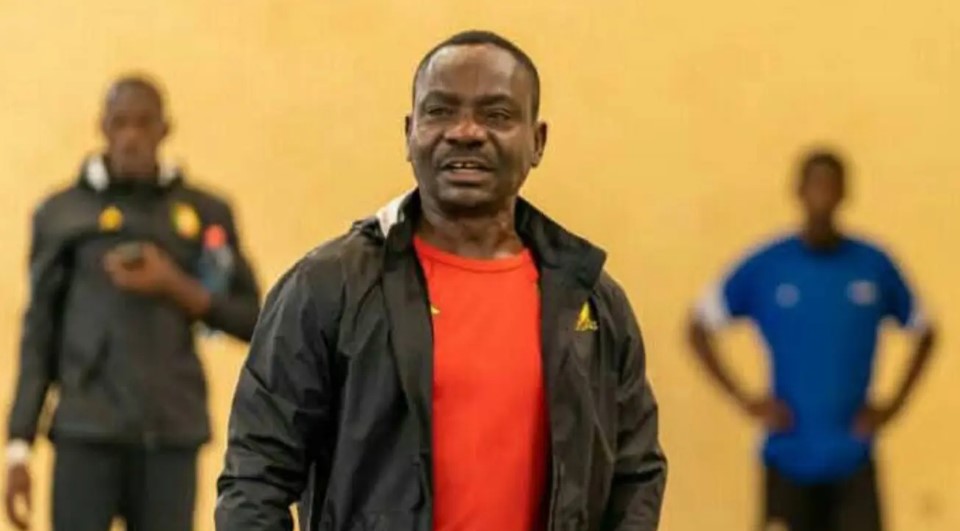
Louis René Epée, head coach of Cameroon women’s futsal national team – source of the image: CAF
Players, too, have embraced the opportunity. Moroccan star Siham Tadlaoui told local press:
“Wearing this jersey in front of our people, in the first Women’s Futsal AFCON — it’s more than the sport. It’s pride. It’s history.”
The reaction online has been equally vibrant. Fans have flooded Twitter/X with clips of spectacular goals and celebrations. Futsal Focus’ own posts about the tournament have seen high engagement, confirming international interest.
CAF and Morocco: Laying the Foundations for Futsal’s Future
Behind the scenes, CAF and the Royal Moroccan Football Federation (FRMF) have gone to great lengths to ensure the success of this inaugural event — not just as a tournament, but as a platform for growth.
CAF organized a comprehensive media campaign across its digital channels. Matches are being broadcast globally via livestream, while news bulletins, stats, and highlights are updated in real-time. Press releases have emphasized that this WAFCON is “the first step in an ambitious new era for women’s futsal in Africa.”
The FRMF, meanwhile, has delivered on infrastructure and logistics. Rabat’s Moulay Abdellah Sports Complex was revamped to host futsal at the highest standard, while side events such as coaching workshops and refereeing seminars are running parallel to the matches.
One notable initiative:
Marcos Antunes, former head coach of Angola’s men’s futsal national team and an experienced futsal educator, has been participating in these workshops. Antunes shared on social media:
“Destiny and recognition of my work, and belief in futsal’s development in Africa, have brought me back to a place where I was so happy. It is an honor to be here, sharing my experience, to help grow the game this continent so richly deserves.”
His presence highlights how CAF and its partners are building local capacity: coaching African coaches to sustain African futsal.
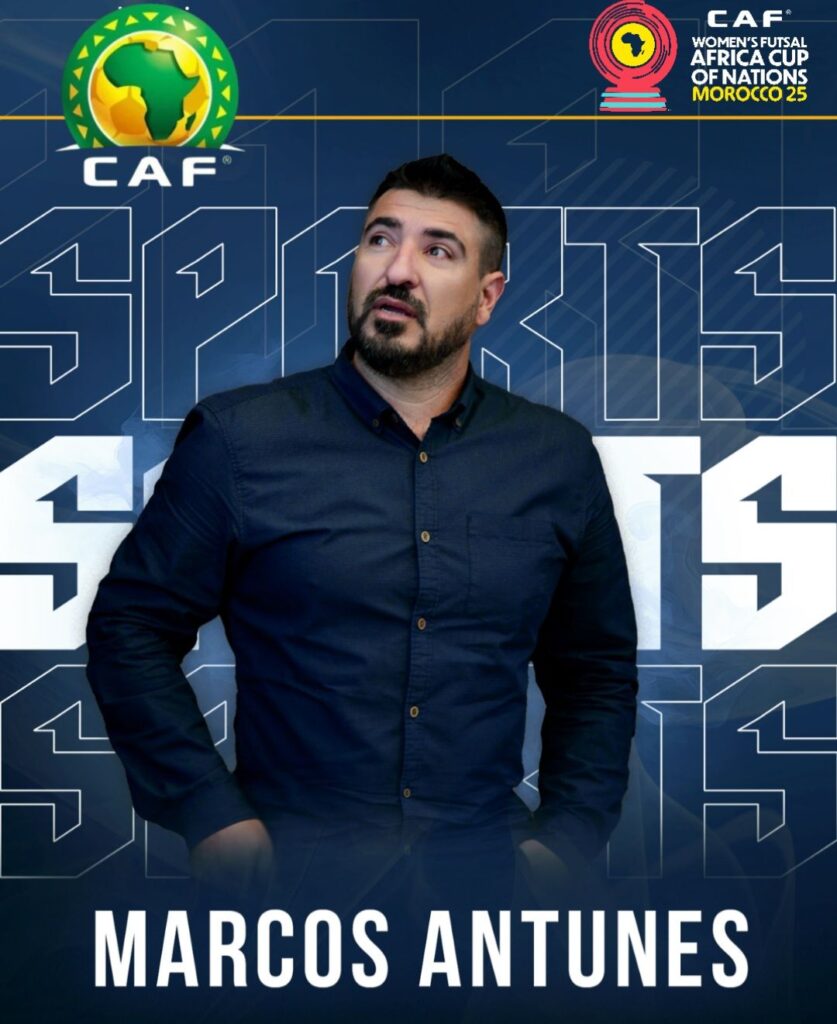
Marcos Antunes, former head coach of Angola’s men’s futsal national team – source of the image Marcos Antunes Futsal Coach Facebook page
Strategic Development: Coaching, Grassroots, and Continental Ambitions
The tournament in Rabat is just one layer of a broader and ambitious futsal development agenda unfolding across Africa. CAF has outlined a multi-stage plan to strengthen the sport’s foundations, currently moving from pilot projects and early implementation into broader continental rollouts:
- Futsal Coaching Qualifications:
CAF is finalizing the introduction of official futsal coaching licenses, with pilot courses already underway in select federations like Morocco and Angola. Full continental rollout is targeted for late 2025 to early 2026. - Technical Director Training:
Specialized training workshops for Technical Directors are in the early phases, aimed at embedding futsal knowledge in the leadership structures of national federations. - Grassroots Tournaments:
Investment in inter-school futsal championships and youth leagues is happening at national level in Morocco, Ghana, Angola, and other early movers, with CAF encouraging replication continent-wide. - U18 and U20 Women’s Futsal Leagues:
Plans to create national U18 and U20 leagues are currently at the pilot or early planning stage in several countries, with ambitions to expand fully by 2026.
These initiatives are being backed by FIFA’s Forward Programme and CAF regional development funding, providing financial and structural support specifically for futsal and women’s football.
- Morocco is leading the way, aggressively expanding its youth programs alongside its powerhouse men’s futsal team.
- Ghana has launched a full national futsal development strategy.
- Ivory Coast is building from university-level futsal competitions.
- Angola is holding large-scale youth recruitment camps focused on preparing players for future continental tournaments and the Youth Olympic Games.
While the vision is ambitious, the reality is that most projects are still in the early implementation or pilot phase.
The foundations are being laid carefully — but the momentum is undeniable.
From pilot projects to a continental dream: African futsal’s future begins now.
Linking to the 2026 Youth Olympic Games: Africa’s Bigger Dream
A crucial subtext to the 2025 WAFCON is the pathway to the 2026 Youth Olympic Games in Dakar, Senegal. Futsal — now permanently on the YOG program after its Buenos Aires 2018 success — will be one of the showcase events in Africa’s first-ever Olympics. For African futsal federations, the race to Dakar is already underway. Angola, in particular, has declared its intention to field both male and female futsal teams in 2026.
Coach Marcos Antunes highlighted:
“Dakar 2026 is a fantastic opportunity. African futsal has everything to gain — visibility, legitimacy, energy. It starts here, at events like WAFCON.”
CAF officials have confirmed that regional youth futsal tournaments and Olympic qualification pathways will be introduced after the 2025 Women’s World Cup, ensuring continuity and momentum. The dream: by Dakar 2026, Africa will not just participate — it will compete to win.
A Catalyst for Continental Transformation
The 2025 CAF Women’s Futsal Africa Cup of Nations is more than just a tournament. It’s a catalyst. A statement. A vision for a vibrant futsal future on African soil. With stunning matches, bold leadership, and visionary strategies connecting today’s talent to tomorrow’s champions, the tournament in Rabat represents futsal’s moment of arrival on the African stage. The journey to the FIFA World Cup. The countdown to Dakar 2026. The construction of grassroots leagues. It’s all happening.
And it all started here.
Related article:
- “Why Not Us?”: Cameroon’s Louis René Epée Eyes Futsal Glory – But Where Are Uganda, South Africa, and Others?
- CAF Champions Women’s Futsal Growth with Strategic Initiatives
Organ Donation
Futsal Focus is a supporter of Dáithí Mac Gabhann and his family’s campaign to raise awareness of Organ Donation. We encourage our readers to learn more about Organ Donation: https://www.organdonation.nhs.uk/
Futsal Focus
You can read more articles about International Futsal by going to the top navigation bar or by clicking here
If you like this article and would like to keep updated on Futsal news, developments, etc. You can now follow Futsal Focus via Google News. By following our page which will send you an alert as soon as we publish an article. Please click here and follow us on Google.
You can also keep updated on Futsal news, developments by submitting your email below in the Subscribe to Futsal Focus option.
Follow Futsal Focus by clicking on Facebook, Twitter, or Instagram or on the social media buttons on the website



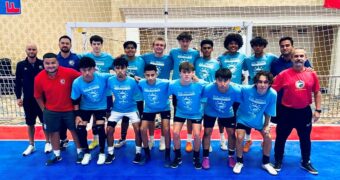



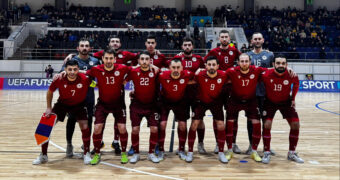
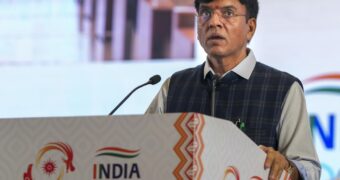
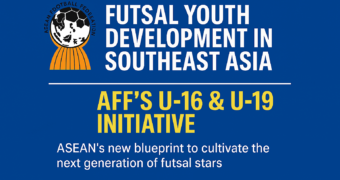


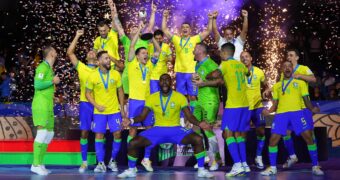



![Validate my RSS feed [Valid RSS]](https://www.futsalfocus.net/wp-content/uploads/2020/01/valid-rss-rogers.png)

